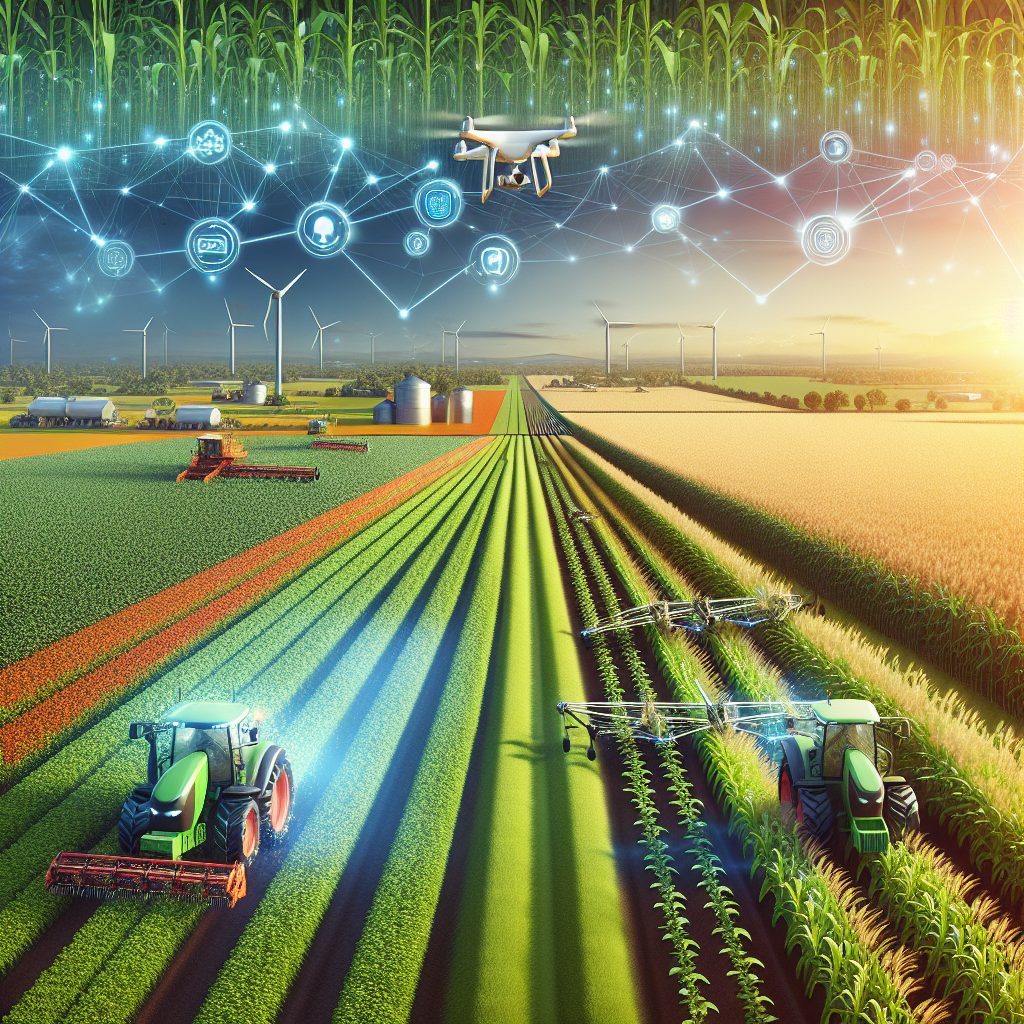The Impact of AI on Agricultural Trade
Artificial Intelligence (AI) is rapidly transforming various industries, and agriculture is no exception. The integration of AI technologies into the agricultural sector has led to increased efficiency, productivity, and sustainability. One of the key areas where AI has made a significant impact is in agricultural trade. From improving supply chain management to enhancing market predictions, AI is revolutionizing the way agricultural products are traded globally.
AI in Supply Chain Management
One of the primary benefits of AI in agricultural trade is its ability to improve supply chain management. AI-powered systems can analyze vast amounts of data to optimize logistics, inventory management, and distribution processes. This not only reduces costs but also ensures that agricultural products reach their destination in a timely manner.
For example, AI algorithms can predict demand for specific agricultural products based on historical data, market trends, and other variables. This allows farmers and traders to better plan their production and distribution schedules, leading to a more efficient supply chain. In addition, AI can help identify potential bottlenecks in the supply chain and suggest ways to mitigate them, such as alternative routes or transportation modes.
AI in Market Predictions
Another significant impact of AI on agricultural trade is its ability to make accurate market predictions. By analyzing data from various sources, such as weather patterns, consumer behavior, and commodity prices, AI algorithms can forecast market trends with a high degree of accuracy. This information is invaluable for farmers and traders looking to make informed decisions about when and where to sell their products.
For example, AI can predict when crop prices are likely to increase or decrease based on factors such as weather conditions and global demand. This allows farmers to time their sales to maximize profits and minimize losses. Similarly, AI can help traders identify emerging markets or niche opportunities that they may have overlooked.
AI in Quality Control
AI technologies are also being used to improve the quality control of agricultural products. By analyzing images and sensor data, AI systems can detect defects, pests, and diseases in crops with a level of precision that is not possible with human inspection alone. This helps ensure that only high-quality products are traded, reducing the risk of rejection or spoilage.
For example, AI-powered drones equipped with cameras and sensors can fly over fields to monitor crop health and detect signs of disease or pest infestation. This allows farmers to take corrective action before the problem spreads, saving time and resources. Similarly, AI systems can analyze images of harvested products to identify defects or contamination, ensuring that only safe and high-quality products are traded.
FAQs
Q: How is AI being used in agricultural trade?
A: AI is being used in agricultural trade to improve supply chain management, market predictions, and quality control. AI-powered systems analyze data to optimize logistics, forecast market trends, and detect defects in agricultural products.
Q: What are the benefits of using AI in agricultural trade?
A: The benefits of using AI in agricultural trade include increased efficiency, productivity, and sustainability. AI technologies help farmers and traders make informed decisions, reduce costs, and ensure the quality of products.
Q: How does AI improve supply chain management in agricultural trade?
A: AI improves supply chain management in agricultural trade by analyzing data to optimize logistics, inventory management, and distribution processes. AI algorithms can predict demand, identify bottlenecks, and suggest ways to improve the efficiency of the supply chain.
Q: How does AI make market predictions in agricultural trade?
A: AI makes market predictions in agricultural trade by analyzing data from various sources, such as weather patterns, consumer behavior, and commodity prices. AI algorithms can forecast market trends with a high degree of accuracy, helping farmers and traders make informed decisions.
Q: How does AI enhance quality control in agricultural trade?
A: AI enhances quality control in agricultural trade by analyzing images and sensor data to detect defects, pests, and diseases in crops. AI systems can identify problems with a level of precision that is not possible with human inspection alone, ensuring the quality of traded products.
In conclusion, AI is revolutionizing agricultural trade by improving supply chain management, market predictions, and quality control. The integration of AI technologies into the agricultural sector is leading to increased efficiency, productivity, and sustainability. As AI continues to evolve, its impact on agricultural trade is likely to become even more significant in the years to come.

